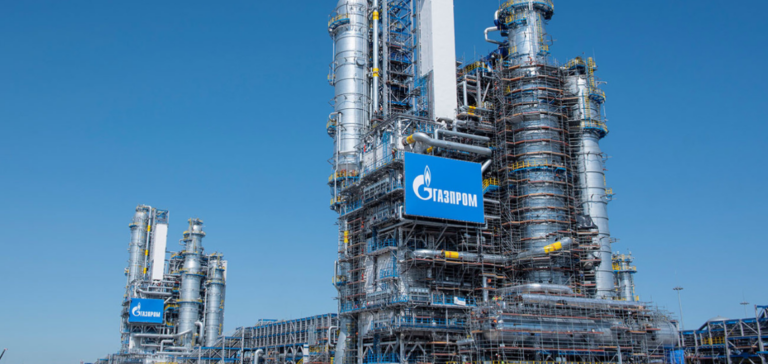Gazprom finds itself at the heart of an economic and political storm. The recent announcement of a 20% reduction in investments for 2024, compared with the previous year, is indicative of the unprecedented challenges facing the company. This substantial reduction, bringing investments down to around 1,573.6 billion rubles (16.3 billion euros), reflects a tense financial situation and a complex geopolitical context.
Impact of Sanctions and European Market Closure
The last few years have been particularly difficult for Gazprom. The near-total closure of the European market, the company’s main international customer prior to the conflict in Ukraine, was a major blow to the company. This situation is exacerbated by the sabotage of the Nord Stream gas pipelines in September 2022, which led to an almost complete halt in Russian gas deliveries to the European Union.
Falling Net Profit and Financial Challenges
On the financial front, Gazprom saw its net profit fall by 44% in the first nine months of 2023, compared with the same period in 2022, dropping to 4.6 billion euros. This deterioration in finances reflects the increased difficulties caused by Western sanctions imposed following Russian aggression in Ukraine. Moreover, the reduction of the 2023 investment program by around 3.4 billion euros was already an indicator of the precarious state of the Group’s finances.
Diversification strategy towards Asia
Gazprom, which holds the world’s largest reserves of natural gas, finds itself in a delicate situation. On the one hand, it has to navigate in an environment of sanctions and restrictions, while facing high fiscal pressure and limited access to international financing. On the other hand, the company has to develop new infrastructures to transport its gas to Asia, a costly and time-consuming process.
However, despite these challenges, Gazprom has its strengths. The ramp-up of the Siberian Force 1 pipeline to China is a positive sign, even if the colossal Siberian Force 2 project has not yet been finalized. These projects reflect the company’s strategy to diversify its markets and reduce its dependence on Europe.
Gazprom’s decision to significantly reduce its investments for 2024 is a key indicator of current economic and geopolitical tensions. It highlights the challenges facing Russia and its state-owned enterprises against a backdrop of sanctions and growing isolation. This situation could prompt Gazprom to speed up its strategic reconfiguration, in particular by turning more towards Asian markets.






















